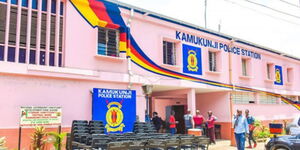The Energy and Petroleum Regulatory Authority (EPRA) has rolled out a new digital system enabling Kenyan customers to identify firms that operate without requisite documents.
EPRA, on Tuesday, announced that it had introduced a Quick Response (QR) code to simplify the verification process of licenses issued to companies dealing with petroleum products.
To verify the authenticity of licenses and permit particulars, Kenyans were advised to carefully scan the QR code displayed on a company's license using their mobile phones.
Once the code is scanned, it will display information about the company including its registered name, license number, application date, expiry date, renewal date, company address, and license type.
According to EPRA, any company found operating with forged, expired, or without a valid license contravenes the Petroleum Act of 2019 and risks a heavy fine or jail term.
As per the Act, any individual or company found importing, exporting, or transporting Liquified Petroleum without a valid license is liable to a fine of not less than Ksh10 million.
A similar fine could also be imposed on a business found guilty of operating a non-licensed LPG facility or even refilling or branding gas cylinders without the company owner’s permission.
The Act also prescribes a Ksh250,000 fine for motorists found guilty of transporting petroleum products without the requisite license.
Additionally, a company will be fined Ksh100,000 for obstructing an EPRA official or licensing agent during an inspection routine. The fine will be charged on each day the obstruction occurs.
Individuals found in possession of LPG seals without the brand or manufacturer's authority will attract a fine of Ksh20,000 for each seal found within the premises.
The new system comes days after Kenyans raised concerns over the credibility of some petrol stations operating in the country. In one particular incident, an online user went ahead to question the quality of fuel sold in some of the filling stations.
However, EPRA on Thursday, February 6, came out to assure Kenyans that fuel sold in Kenya strictly adhered to the set quality standards.
Nonetheless, the regulator cautioned the public about gadgets that provide false or unverified Research Octane Number (RON) ratings.
According to EPRA, results from some of the gadgets could not be guaranteed unless confirmed through laboratory tests that follow the required standards procedure.












